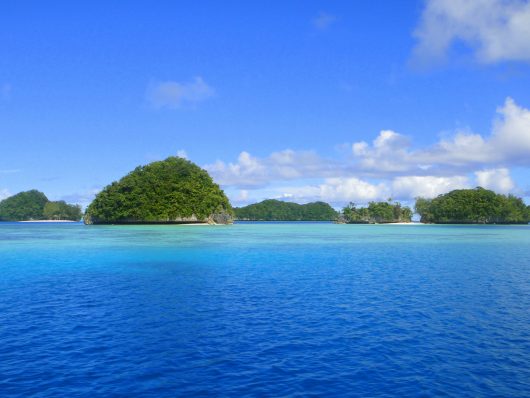Hurdling Over Causes of Poverty in Palau
 Palau is an island country located in the west Pacific Ocean. The country has attempted to circumvent the common causes of poverty in Palau by bringing the United States on board with its economic policies.
Palau is an island country located in the west Pacific Ocean. The country has attempted to circumvent the common causes of poverty in Palau by bringing the United States on board with its economic policies.
History
In the immediate aftermath of World War II, the United Nations assigned the U.S. the task of administering authority in a few Pacific islands, including Palau. The U.S. helped Palau by building roads, hospitals and schools and eventually extending eligibility for U.S. federal programs. Palau flourished and obtained independence in 1994. As a sovereign nation, Palau makes its own decisions about its economy.
A Helping Hand
As of 2008, the U.S. hoped to influence Palau’s economy for the better, keeping economic-related causes of poverty in Palau at bay. The U.S. continued to give millions to Palau’s economy, especially through federal programs. The U.S. also made sure to assist private sector growth in Palau. The U.S. economic support in Palau is essential to ensure Palau’s financial system, labor and commercial sectors are thriving. If these vital sectors collapsed, the general population would face poverty because the country would experience a great drain of economic power.
Between 1995 and 2009, the U.S. gave approximately $852 million to Palau to help the island become a self-sufficient economy.
Does the Aid Help?
While Palau businesses’ financial coffers are seemingly robust due to U.S. aid, there are disproportionate sectors of the population that continue to face common causes of poverty. For example, since Palau is an island, some of its population earns a living through fishing.
Fishing is an accessible way to earn a living to keep poverty at bay. However, almost a third of the fish stocks in the world are overfished or overused. Trade barriers also prevent local fishermen and producers from meeting the high standards that international markets demand. Overfishing causes damage to nature and to the cycle of life. In turn, fishermen may be damaging their financial futures.
Fortunately, Palau noted that fishing would help erode poverty in its more remote areas. The government of Palau started a shark sanctuary. The idea behind the sanctuary was to encourage conversation about conservation and to draw a higher number of tourists to boost the local economy.
Tourism is a leading economic contributor to revenue in Palau. There was a dramatic increase in visitors from relatively nearby China. In 2016, Palau hosted over 138,000 tourists—not only from China, but around the world. Now, Palau plans on preserving its natural beauty, including its fisheries, to continue to benefit from this revenue.
By having the U.S. support its economic endeavors and establishing its own industries, Palau is ensuring that it has a sound plan to effectively combat any remaining causes of poverty in Palau.
– Smriti Krishnan
Photo: Flickr
